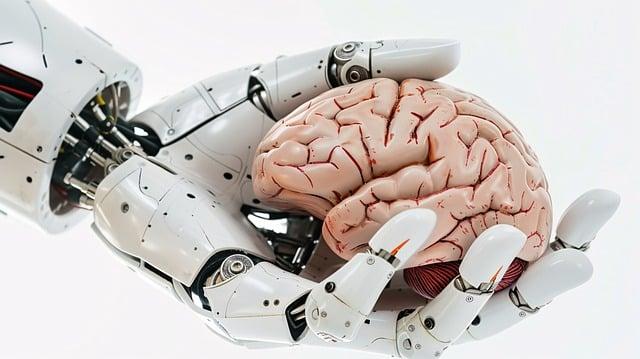- Introduction
- Redefining Life
- Biomedical Benefits
- Sustainability Innovations
- Ethical Challenges
- Future Impact
- Conclusion
- FAQs
- References
Introduction
Bioengineering, the application of engineering principles and techniques to biology, is revolutionizing the way we perceive and interact with living organisms. From biomedicine to sustainability and beyond, bioengineering has the potential to redefine life as we know it.
Redefining Life

(Image: Pixabay/@Belova59)
One of the key aspects of bioengineering is its ability to redefine life by manipulating biological systems to create new functionalities. Scientists are now able to design and construct biological parts, devices, and systems that do not exist in the natural world. This opens up possibilities for creating novel treatments for diseases, developing biofuels, and even designing new forms of life with specific traits.
Moreover, bioengineering has led to breakthroughs such as synthetic biology, genetic engineering, and tissue engineering, enabling researchers to enhance living organisms' capabilities or create entirely new ones.
As a result, bioengineering is at the forefront of cutting-edge research, pushing the boundaries of what is possible in the biological realm.
Biomedical Benefits

(Image: Pixabay/@MustangJoe)
Within the field of bioengineering, biomedical applications play a crucial role in improving human health and quality of life. Technologies such as artificial organs, prosthetics, and advanced diagnostic tools have transformed the medical field by offering personalized solutions and more effective treatment options.
Furthermore, bioengineered medications and vaccines have revolutionized disease prevention and treatment, saving countless lives globally. The intersection of biology and engineering has paved the way for innovative solutions that address complex medical challenges.
By harnessing the power of bioengineering, researchers continue to develop cutting-edge therapies and medical interventions that hold the promise of a healthier future for all.
Sustainability Innovations

(Image: Pixabay/@GDJ)
Bioengineering has also become instrumental in driving sustainable initiatives across various industries. By leveraging biological processes and materials, bioengineers are finding eco-friendly solutions to pressing environmental issues.
From bio-based plastics to bioremediation techniques, bioengineering offers sustainable alternatives that reduce our reliance on non-renewable resources and minimize environmental impact. By mimicking nature's efficient processes, bioengineering contributes to building a more sustainable and resilient future.
The innovative applications of bioengineering in agriculture, energy production, and waste management are paving the way for a greener and more sustainable planet.
Ethical Challenges

(Image: Pixabay/@DavidZydd)
Despite its incredible potential, bioengineering also presents ethical dilemmas and challenges that must be carefully considered. Questions about genetic manipulation, privacy concerns related to personalized medicine, and the implications of altering ecosystems raise critical ethical issues within the field.
Balancing scientific advancement with ethical considerations is essential to ensuring that bioengineering continues to benefit society ethically and responsibly. Striking a harmonious balance between innovation and ethical standards remains a significant challenge for researchers and policymakers working in the field.
Addressing these ethical challenges is crucial to fostering public trust and navigating the complex societal implications of bioengineering advancements.
Future Impact

(Image: Pixabay/@Parker_West)
Looking ahead, the future impact of bioengineering is poised to be transformative across various domains. With ongoing advancements in gene editing, regenerative medicine, and bio-inspired technologies, bioengineering holds the key to addressing some of the most pressing challenges facing humanity.
From personalized healthcare solutions to sustainable bio-manufacturing processes, bioengineering is set to revolutionize industries, enhance human well-being, and shape the future of technology in unprecedented ways.
The continued exploration of bioengineering applications and their integration into diverse fields will pave the way for a future where biology and engineering converge to drive innovation and progress.
Conclusion
In conclusion, bioengineering stands at the forefront of scientific innovation, redefining life through groundbreaking research and technological advancements. From biomedical breakthroughs to sustainability solutions, bioengineering offers a plethora of opportunities to address global challenges and improve human well-being.
As the field continues to evolve, it is essential to navigate the ethical considerations and societal implications associated with bioengineering developments responsibly. By embracing the transformative potential of bioengineering, we can shape a future where science and engineering converge to create a more sustainable and vibrant world.
FAQs
What are the primary applications of bioengineering?
Bioengineering finds applications in various fields, including biomedicine, environmental sustainability, agriculture, energy production, and more. Its diverse applications contribute to advancements in healthcare, environmental conservation, and industrial innovation.
What ethical challenges are associated with bioengineering?
Some ethical challenges in bioengineering include genetic manipulation, privacy concerns in genomic data handling, equitable access to bioengineered products and technologies, and dilemmas related to ecosystem modifications. Addressing these ethical dilemmas is crucial to ensure responsible and sustainable bioengineering practices.
How can bioengineering contribute to a more sustainable future?
Bioengineering offers sustainable solutions by leveraging biological processes to develop eco-friendly alternatives in industries such as materials manufacturing, agriculture, waste management, and energy production. By harnessing nature's efficiency, bioengineering plays a vital role in promoting sustainability and environmental stewardship.

